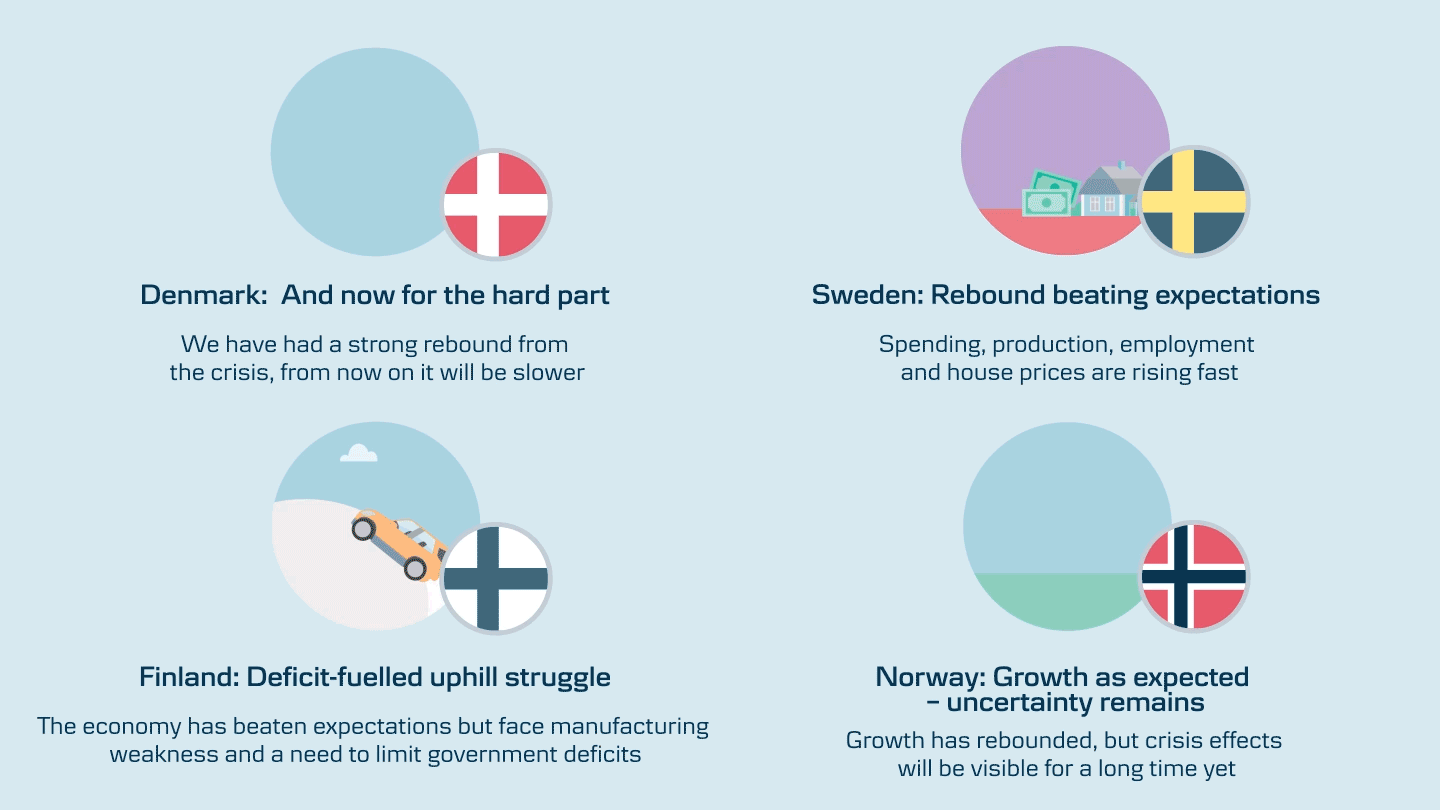Highlights

 Content is loading
Content is loadingNordic Outlook is a quarterly publication that presents Danske Bank’s view on the economic outlook for the Nordic countries.


Businesses are in better financial health than could have been feared after a crisis such as the one we have seen and there has been no explosion in bankruptcies. Household finances are strong on average, as savings spiked during lockdown and house prices have kept increasing.
Las OlsenChief economist, Danske Bank
We are also concerned that the Nordic economies might not yet have seen the full effect of the substantial fall in income elsewhere and that there might be a delayed effect on exports. This is especially the case for Finland, where earlier big orders have kept manufacturing going but new orders are few.
Fundamental shape is good
There has been a strong fiscal policy response to the crisis but the loss for the government has generally been much smaller than expected in the Nordic countries and their public finances remain stronger than in most other places – although Finland will need some consolidation in the longer term.
Businesses are in better financial health than could have been feared after a crisis such as the one we have seen and there has been no explosion in bankruptcies. Household finances are strong on average, as savings spiked during lockdown and house prices have kept increasing.
For Sweden’s Riksbank, the crisis has created further problems in reaching the inflation target but Norway could well be among the first countries to hike interest rates after the coronavirus crisis.

.png?h=128&iar=0&w=128&rev=c0456076148343a69ec27218e9fa39aa&hash=5367D3AD7CFBE8E78181A6587FAB2790)